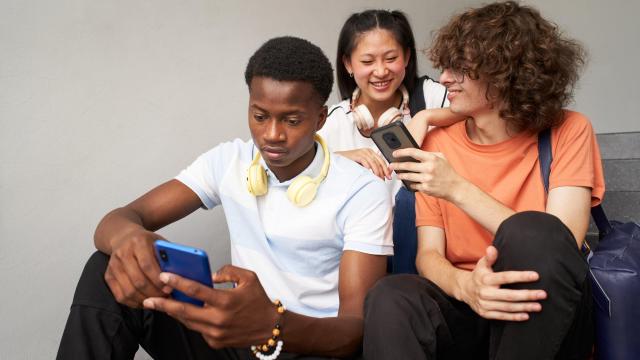Instagram makes teen girls feel worse about their bodies, according to internal Facebook documents published in the Wall Street Journal. (Facebook owns Instagram.) The app is full of pictures of impossibly thin and beautiful people, so that tracks; and we’ve been fretting for years over the dangers of young people having access to digital devices. But is Insta really rotting kids’ brains? The truth is probably more complex, and the data is definitely incomplete.
I say this not to defend Facebook (it’s evil), but to help those of us who are trying to figure out what to do, if anything, about our kids’ social media use.
First, those Facebook stats
The statistics in the leaked Facebook presentations are pretty damning: A third of teen girls feel worse about their bodies after viewing Instagram, and 6% of suicidal teens in the U.S. say their feelings started on the app. But as Anya Kamenetz points out at NPR, these numbers aren’t necessarily representative of all teens.
The question about whether Insta makes teen girls feel worse about their bodies was only asked of teen girls who had previously said they have body image issues. (In that case, it’s perhaps surprising that two-thirds didn’t feel that Insta made them feel worse.) And the suicide figure comes from a tiny sample of teens; just 16 people on this earth said they can trace suicidal thoughts to the time they spend on Instagram, and only some of those count for the U.S. data. Any number of suicidal teens is too many, but is Instagram driving kids to suicide? What would those 16 teens’ lives look like in a world without social media? We don’t really have answers.
One of the most depressing things about this line of research is that it’s currently impossible to get accurate, comprehensive answers to our big questions. Facebook holds its data tightly. Outside researchers can’t get anywhere near the amount of detail that Facebook itself can get, so they end up using less precise and less complete measures of social media’s impact. Facebook has all the data a researcher could want, but they get to decide what questions to ask about it and whether or not to release the results.
What other research says
Digging into that other research, what can we learn about social media’s impact on teens’ mental health? Not a lot, it turns out. One fascinating paper is this review, published in 2020, looking at papers published in the previous few years. The authors don’t find a one-way street where social media tells teens how to feel. Instead, teens have complicated feelings and complicated lives, and social media is just part of that landscape.
It seems to be true that social media can reinforce mental health problems or make kids susceptible to bullying. But it can also be a positive force: Teens with mental health issues use social media to try to understand what’s going on and look for ways to manage their symptoms.
Social media is also part of many people’s (including teens’) social support networks. They use their phones and their apps to stay in touch with family and friends, and to find people with shared interests.
A Pew study conducted in 2018 found that 24% of teens said social media had a negative effect on their lives, but 31% said the effect was overall positive. (The rest felt it was neither positive nor negative, on balance.) The same Facebook documents that reported that Insta makes teens feel worse about themselves actually found more positive than negative answers. For example, 19% of U.S. teens said Insta makes them feel “somewhat” or “much” worse about their mental health, while 41% said it makes them feel somewhat or much better.
What can we do with this information?
There’s a small ray of hope from the 2020 review. After going through what’s known about teens and social media, and the many limitations in the way we study it, the authors point out that since teens’ online and offline experiences both shape their lives, then “the good news for parents and policy makers is that existing evidence-based interventions and strategies may look different but will still be effective in supporting youth in the digital age.”
Meanwhile, we have a lot more questions to answer if we want to find out what Instagram (or TikTok or any other social network) is doing to kids’ minds. It will probably turn out to matter who uses what network, in which ways, doing what kinds of things, and connecting with which other people. Context matters, and offline factors matter. And we just don’t have enough data yet to really describe what’s going on.
Again, I’m not defending Facebook or Insta. They clearly have created a complex monster that they should — yet claim they cannot — control. But from a mental health point of view, should we be stopping our kids from using social media? I don’t see that as the only conclusion here.
I went to school in the days when kids had to bully each other in person, and our photoshopped images came from copies of Seventeen magazine that we passed around in study hall and critiqued with Sharpies. We developed so many fucked up body image issues and mental health issues without the help of any digital social media at all.
A teen who chucks their phone into the sea is still going to have feelings and is still going to have to find their own way to fit into the world. It may be most useful to think about how we can positively influence our kids’ social lives and not just their social media use.

Leave a Reply
You must be logged in to post a comment.